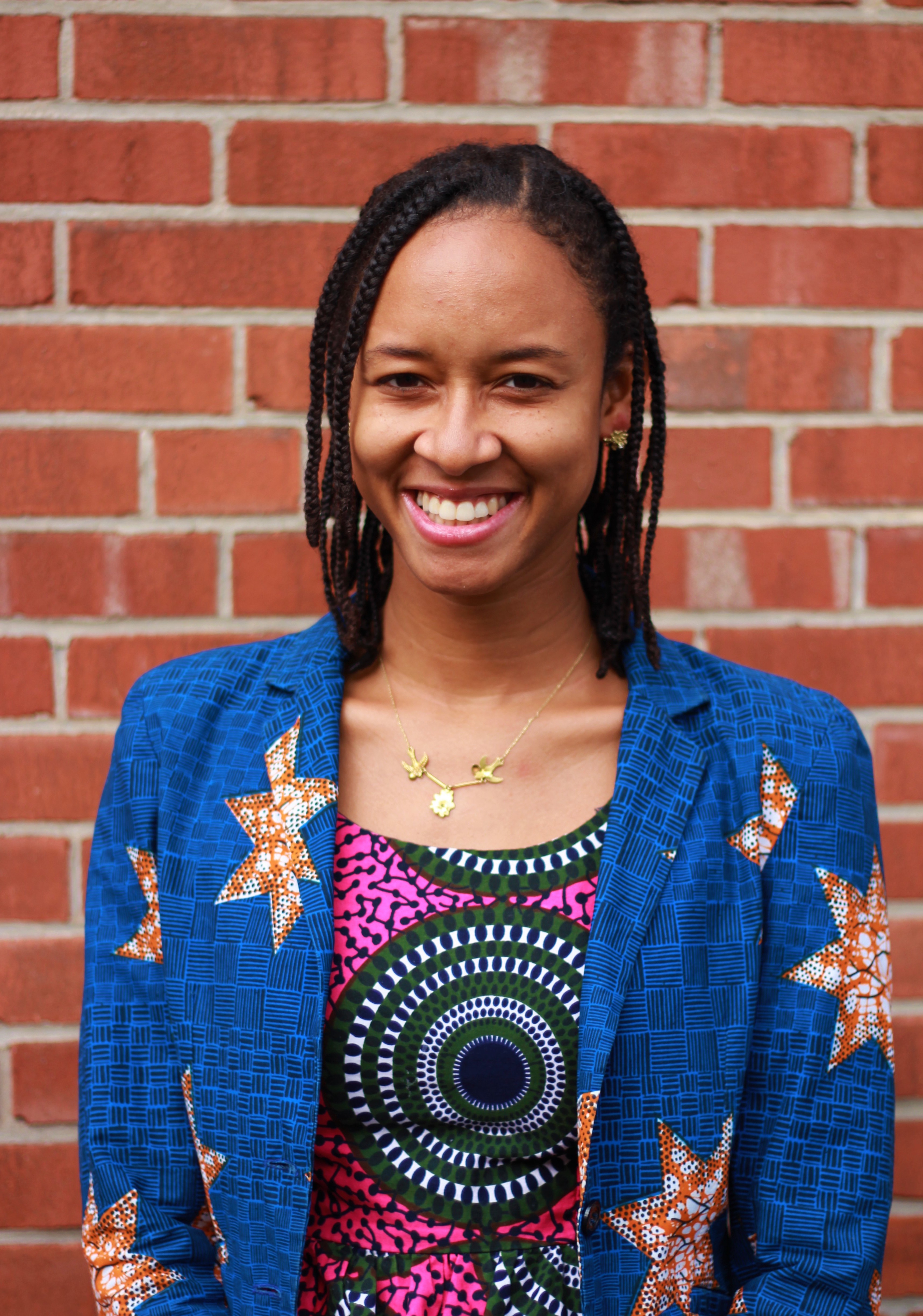Dr. Elyan Hill received her Ph. D. from the University of California, Los Angeles (UCLA). As a scholar of Africa and African diasporas, her research foregrounds visual cultures, black feminisms, and embodied renderings of the domestic and transatlantic slave trades in Ghana, Togo, and their diasporas. Most recently, Elyan was an Africana Research Center Postdoctoral Fellow in Women’s, Gender, and Sexuality Studies at Penn State. While at the University of Pennsylvania, her work will address how West African women, as creative agents, collectively craft and experience histories and navigate the tensions between local and global concerns. She explores the authoritative choices of black women and looks forward to contributing to the topic of CHOICE by exploring how West African women’s choreographic and aesthetic choices play into the production of polyvocal historical narratives presented as embodied rituals. She is hard at work on two articles and her first book manuscript.
Elyan Hill
Andrew W. Mellon Postdoctoral Fellow in the Humanities
2020—2021 Forum on Choice
Elyan Hill
Africana and Women's Studies
University of California, Los Angeles, 2018
Spirited Choreographies: Women's Ritual, Identity, and History-Making in Ewe Performance
During vivid rituals for a family of spirits called Mama Tchamba Ewe people in Togo produce living histories of domestic slavery. By inviting the spirits of enslaved ancestors to control their bodies, domestic spaces, and shrines, ritual specialists connect themselves to histories of trade and forced migration that are otherwise submerged in fractured memories. Since ritual practitioners remember the enslaved as practicing Muslims captured in northern Togo, performers exaggerate Muslim aesthetics as they dance adorned with fez hats and sparkling head ties understood to come from “the North.” I argue that devotees use ritual performances to map the spectral legacies, or afterlives, of slavery onto contemporary social relations.
This project will examine ways that women navigate issues of global social justice including poverty, sex work, education, and exploitation through creative tactics and by mobilizing arts practices as they display and reframe embodied histories. My work highlights the choreographic, creative, and political choices of women ritual specialists as they select specific histories and gestures through which to build individual and collective identities. Mama Tchamba devotees in particular present themselves as surrogates for enslaved persons in ways both generative and problematic, strategically choosing to identify with their northern, Muslim, enslaved ancestors rather than their historically wealthy, slaveholding forebearers. This research focuses on ways non-elite women transmit unwritten family histories of domestic slavery using their bodies as catalysts for collectively remembering narratives of enslavement as a politicized form of social critique.



